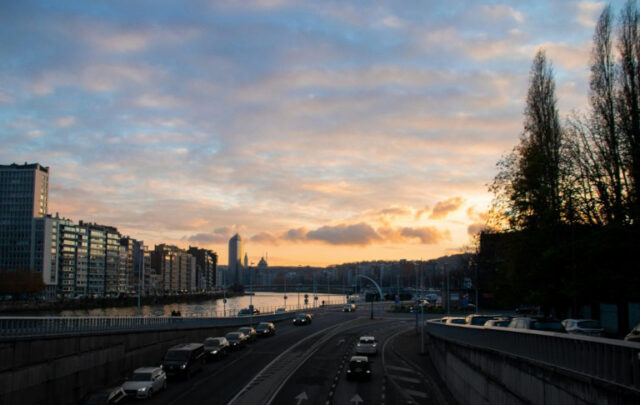NOTE: Images in this archived article have been removed.
In Resilience Reflections we ask some of our contributors what it is that inspires their work, and what keeps them going.

Chris Smaje works a small mixed farm in Somerset and blogs at smallfarmfuture.org.uk. He’s written on environmental and agricultural issues for publications like The Land, Permaculture Magazine and in Dark Mountain: Issue 6, and also in academic journals (Agroecology & Sustainable Food Systems; the Journal of Consumer Culture; the Journal for the Study of Religion, Nature and Culture). Trained in anthropology and social science, he previously worked at the Universities of Surrey and London.
Who/what has been your greatest inspiration? And why?
I think I’d have to say the permaculture movement. I’ve written critically about many of its sacred cows and I’d advise anyone following a permaculture design course to take what they’re taught with a large pinch of salt, but as an inspiration for de-skilled urban householders to find ways of moving towards resilience through their own efforts I have a lot of admiration for it. More cornily, I’d also say my wife Cordelia – her ability to connect with unsentimental directness to the people and things around her to make good things happen fills me with wonder.
Knowing what you know now about sustainability and resilience building, what piece of advice would you give your younger self if you were starting out?
There’s no single right path and there’s a lot to be learned from people following different, even antithetical, paths to your own. So try to be open to everything – practical skills, academic and scientific learning, ethical and spiritual wisdom. Be sceptical, but not cynical. Try to follow your heart and be the change you want to see, but don’t beat yourself up too much when you fail, as sometimes you certainly will. To which my younger self would probably have nodded politely and thought ‘Spare me these patronizing generalities, old timer’. Which is probably the right response.
What keeps you awake at night?
Very little. Owls, occasionally. A physical job in the countryside has its advantages!
What gets you up in the morning or keeps you going?
Coffee. Organic, fair trade, shade-grown…even so, regrettably my lifestyle falls some way short of a sustainable ideal.
What has been your biggest setback and how did you recover?
Closing our market gardening business down for a time. It was the result of bureaucratic obstacles and a difficult economic environment for small businesses in general and small farm businesses in particular, but the way it manifested was mostly in terms of conflicts between some of the people involved, as is often the case. We’re still in recovery mode, but the way I think we’ve been doing it on the bureaucratic front is through trying to get the right mix of compromise, dogged persistence and lateral thinking, and more generally by realizing that strong and clear relationships between people are the key to any project, however apparently practical or technical. But I still have more work to do on both fronts.
For you resilience is…?
A way of life, a mode of thought, an openness to creating relationships with other people to enhance wellbeing without excessive expectations that I’m owed my wellbeing by anyone else.
What one social/political/cultural/policy change would most assist your work/hopes/dreams?
Only one change? That’s tricky. Well, I think a lot of unsustainable practices and human misery stem from the fact that we allow money to flow around the world to wherever it can earn the biggest return but we don’t allow people themselves the same freedom. If both money and people could move freely, or else neither could, then in either case I think the world could be a better place. Could be a better place, though it wouldn’t necessarily be – we might need a few more changes to be sure of that…
What gives you hope?
The fact that ultimately it’s not so difficult to produce a satisfying and sustainable human livelihood, and that most people are capable of generosity and justice. So there are reasons to think that our present unsustainable and unjust civilization could change for the better. Hopefully.
What book/film/other resource has most supported your work?
There’ve been so many books…can I name two to represent the practical and the intellectual sides of what I do? On the practical side, Iain Tolhurst’s approach to farming and his book Growing Green co-written with Jenny Hall has been a big influence. Intellectually, Christopher Lasch’s The True And Only Heaven first showed me in detail the way that our modernist notion of ‘progress’ isn’t a simple historical fact but a story we actively construct, and one which obscures many other stories. I don’t totally agree with either of them, but I think that’s OK – it’s better to have influences than gurus.






